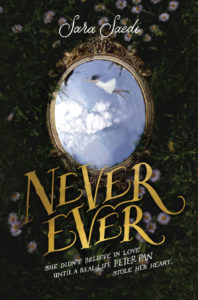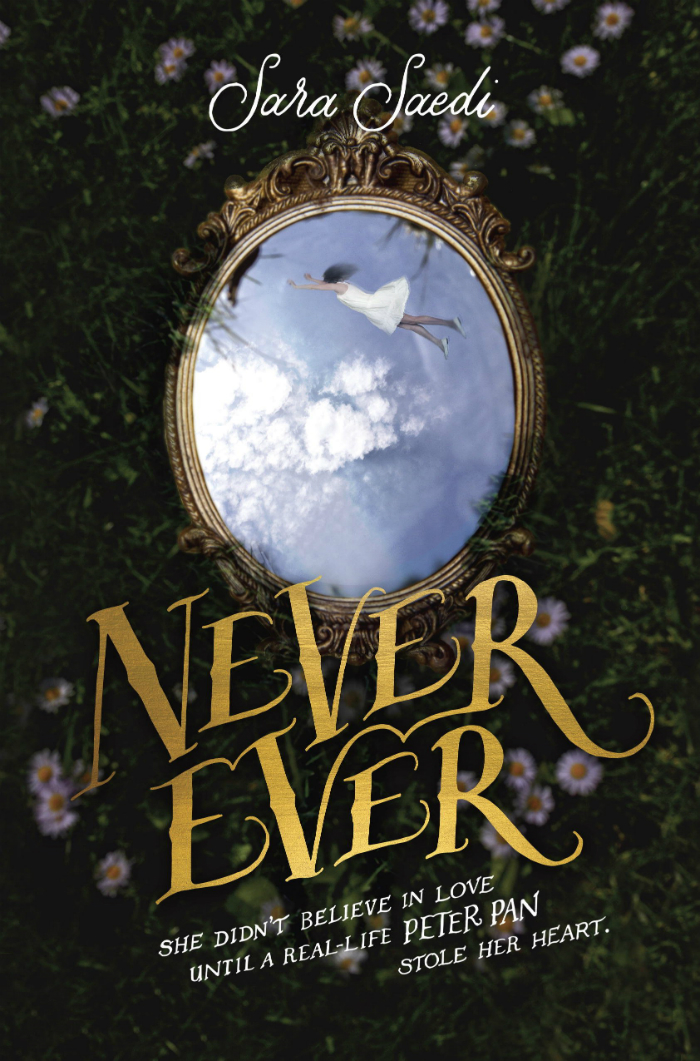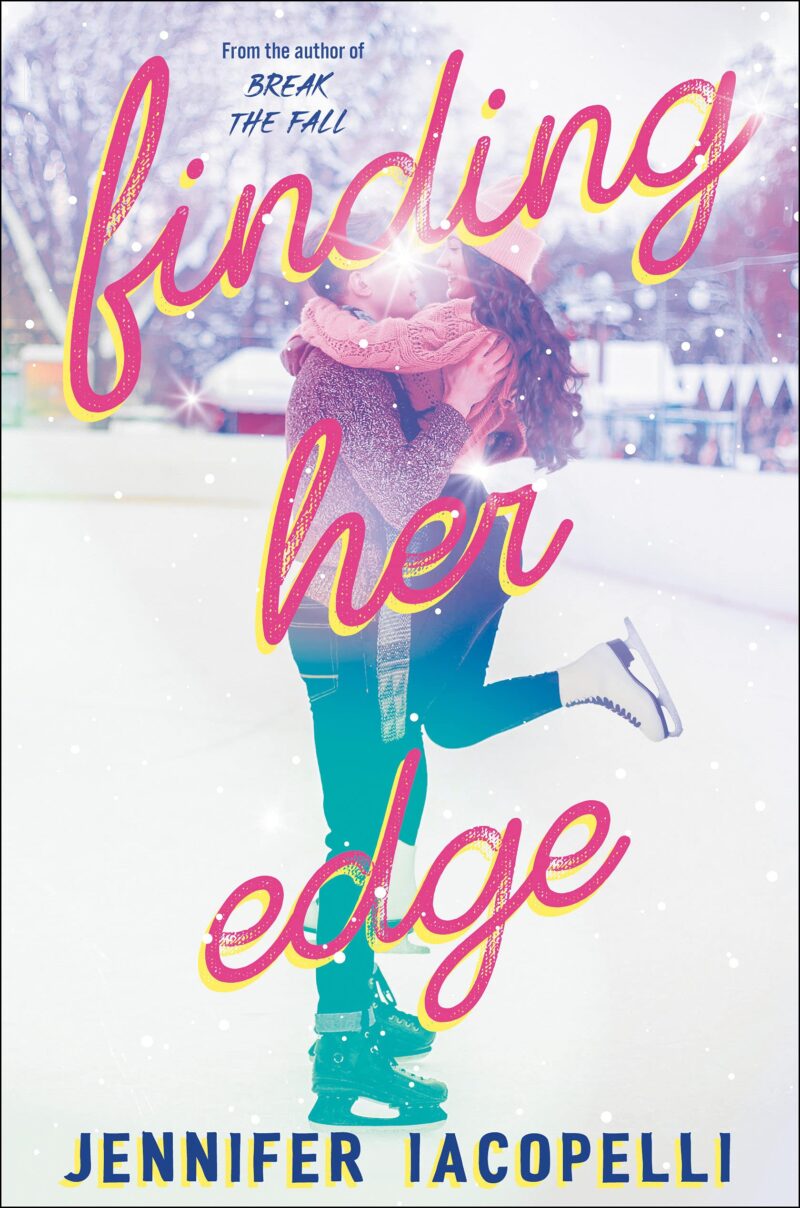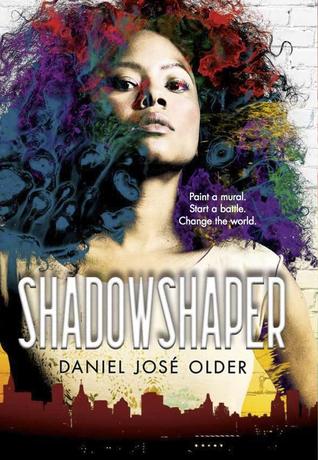
Wylie doesn’t expect to fall for a guy at her brother’s going away party – she’s here to spend time with her brother Joshua, not make small talk – but she especially doesn’t expect to fall for a guy who can fly and lives on an island where teenagers never grow up. When the mysterious Phinn whisks away both Wylie and her two brothers to Minor Island, the Dalton siblings are in for an experience they’ll never forget.
Man, Peter Pan re-imaginings are weirdly in this season. Unfortunately, I had a hard time getting into Sara Saedi’s Never Ever. I think this boils down to the fact that Saedi failed to convince me of…pretty much anything. In the original Peter Pan story, Neverland is a place where children never grow up – a delightful conceit. Being a kid is great, and everyone knows it. On Saedi’s Minor Island, children grow up to the age of 17 and then stay that age forever. Forgive my oldness, but that seems AWFUL. Stuck at the age where you’ve lost your childhood innocence but can’t actually act independently yet (also, hormones) forever? No thanks! Plus, on Minor Island you lose a great deal of what is charming about being a kid: Phinn and the other islanders have a lot of sex and drink a lot of booze. Without the innocence and joy that comes from being a kid forever, eternal youth seems a lot less charming.
But even more than that, I never understood why Wylie liked Phinn in the first place. He has pretty much every trademark of an emotionally abusive egomaniac, and while those personality traits do play into the plot further along in the story, it’s distracting and majorly spoils some of Saedi’s twists. I wish she could have better disguised his awfulness.
Never Ever isn’t all bad, however. I like the sibling camaraderie between Wylie and her younger brothers, Joshua and Micah. I feel like it’s more common to see extreme sibling rivalry in YA novels, and the change to a more supportive and loving relationship is a nice change. The idea of Minor Island, too, while horrifying in some regards, does have its own appeal – what better place to set a teen drama than a self-governing island party paradise? I may have qualms with it ideologically, but it is a fertile setting for the action of the novel. Similarly, things do start to get a bit more exciting towards the end…but then the story abruptly cuts off, as Never Ever is apparently not a stand-alone book as I first expected. Ultimately, I found myself thinking that Saedi’s method of storytelling would be better suited to television (of which she is a veteran). For me, it didn’t really work as a compelling book.
A copy of the book was provided by the publisher for review.




